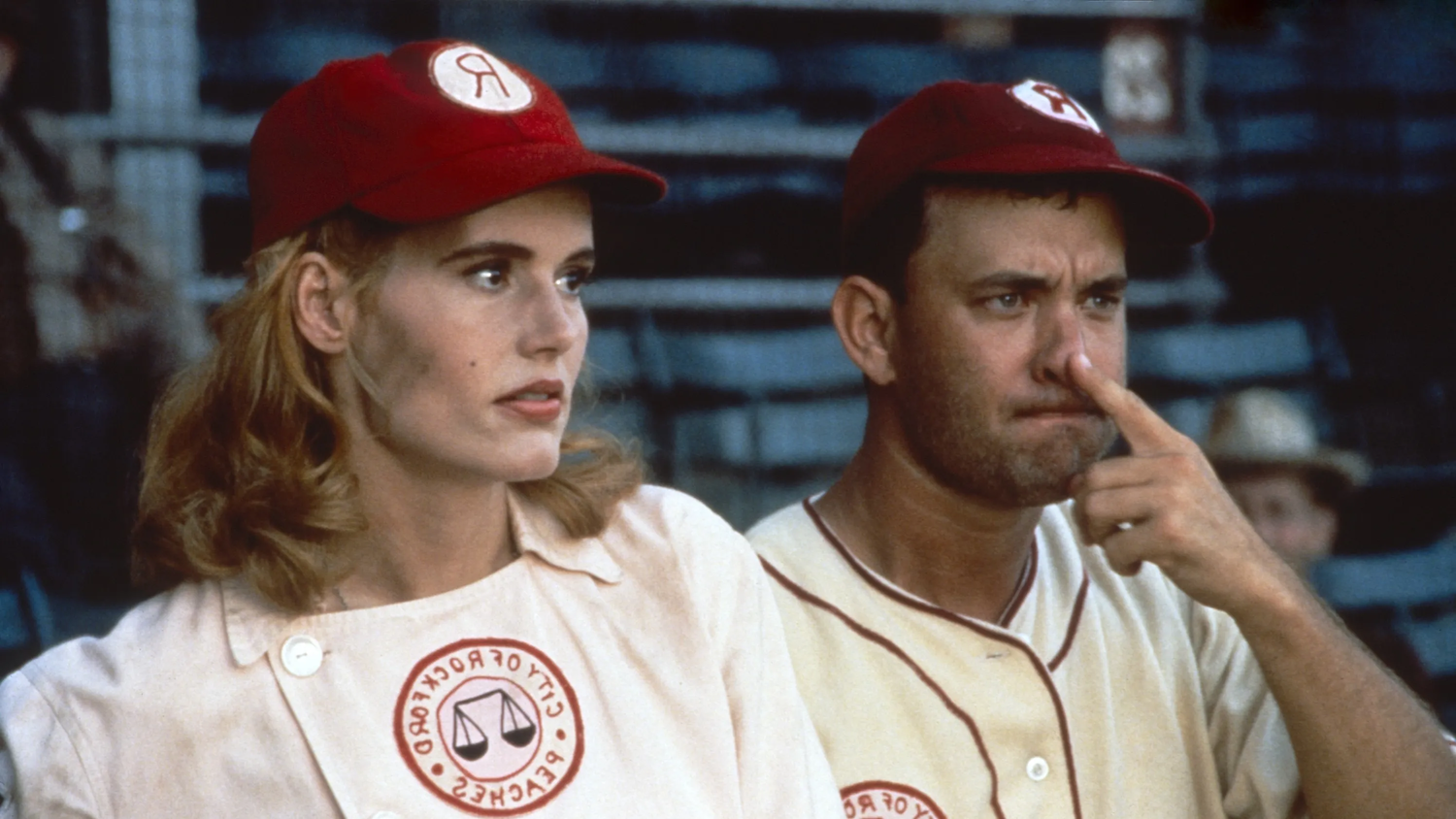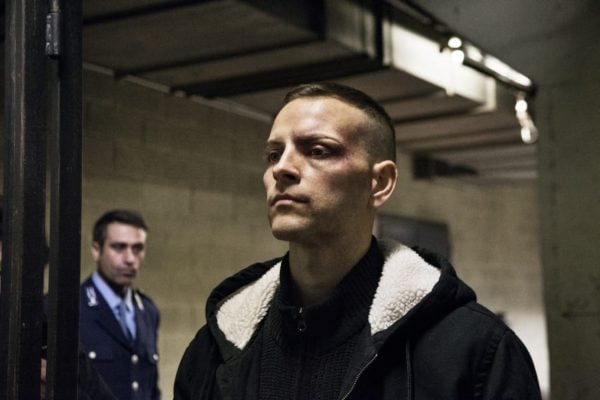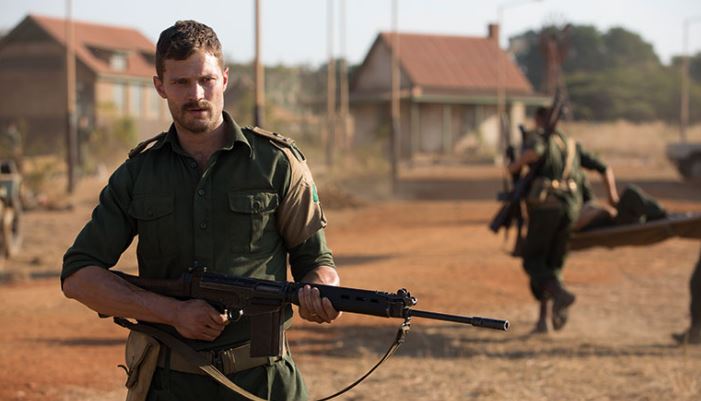40 Best Movies on Netflix Based on True Stories
Movies based on true events spark true interest: knowing that the story actually happens changes the experience completely. Below we count down our best recommendations based on a true story which are available to stream on Netflix.
Jump to the top 10:
* 2 recommendations are either hidden or no longer available.
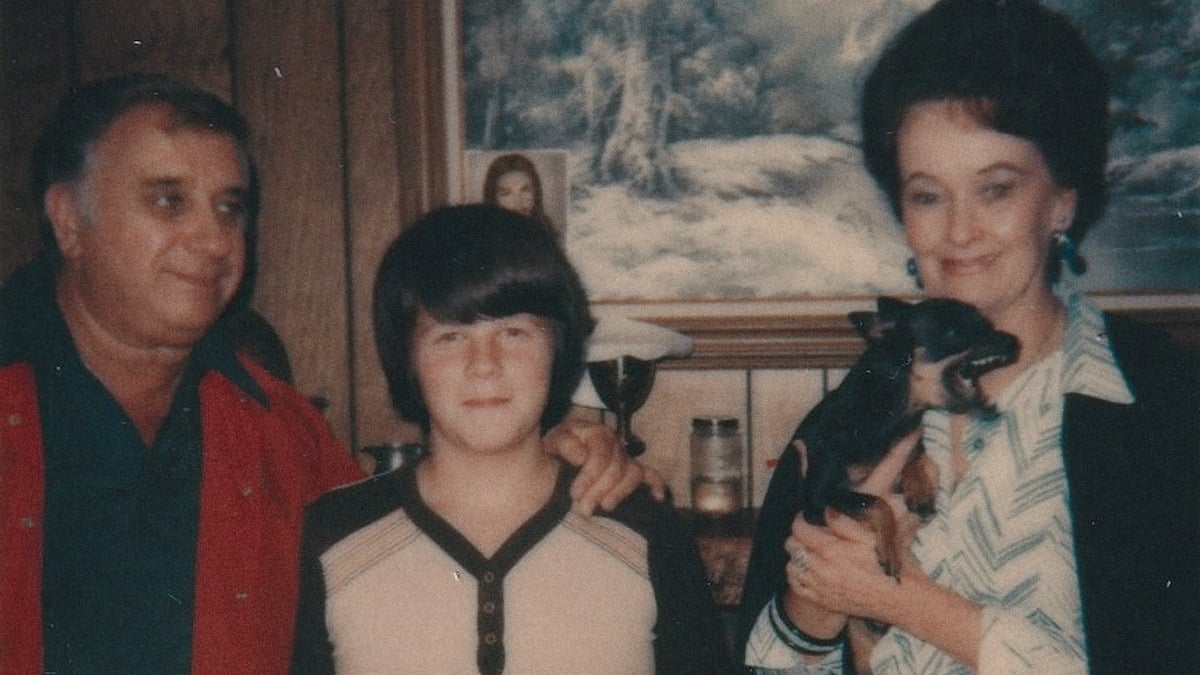
Just in time for Halloween, Netflix has shelled out for a new, high production value doc about demonic possession. It has all the right ingredients: a true story (that of Arne Cheyenne Johnson, also known as the “Devil Made Me Do It” case of 1981), some convincing re-enactments, the air of exclusivity (use of real archives), but it still feels like a let-down to the true horror buffs who’d tune in expecting something fresh. After all, Netflix has been in the game for a while and it’s not a good look to settle for something as mediocre. For The Devil on Trial, it seems like the execs have just upped the budget on a regular cable-TV-haunted-house after hours special and then patted themselves on the back. Even the interviews featured are full of cliches, which strips down the horrifying potential of authenticity.

Pain Hustlers is based on a 2018 New York Times article of the same name exposing a drug company that marketed a fentanyl-based drug. Zanna, the on-screen pharmaceutical start-up, is modelled after Insys: the actual company who pushed a fentanyl-based spray for pain management with the help of sales reps who particularly appeal to a certain male gaze. A DIY scheme of bribing doctors through “speaker programs”—or recurring, debaucherous parties—gets Zanna off the ground, catapulting stripper-turned-manager Liza Drake (Emily Blunt) to a much-yearned financial stability. Together with the coked-up COO (magnificently played by Chris Evans), Liza puts her street smart potential to work; she goes all in, until it all crashes and burns. It’s cynical how predictable the plot of such a film can be, mainly because the only character development we see is in Liza’s sudden moral spark at the sight of drug abuses and overdoses. Pain Hustlers tries really hard to build a hero, tear her down, and then rehabilitate her status, but to what end? The film ends up using the fentanyl crisis as a narrative drive, a highly dubious move when you’re supposed to be spreading awareness.
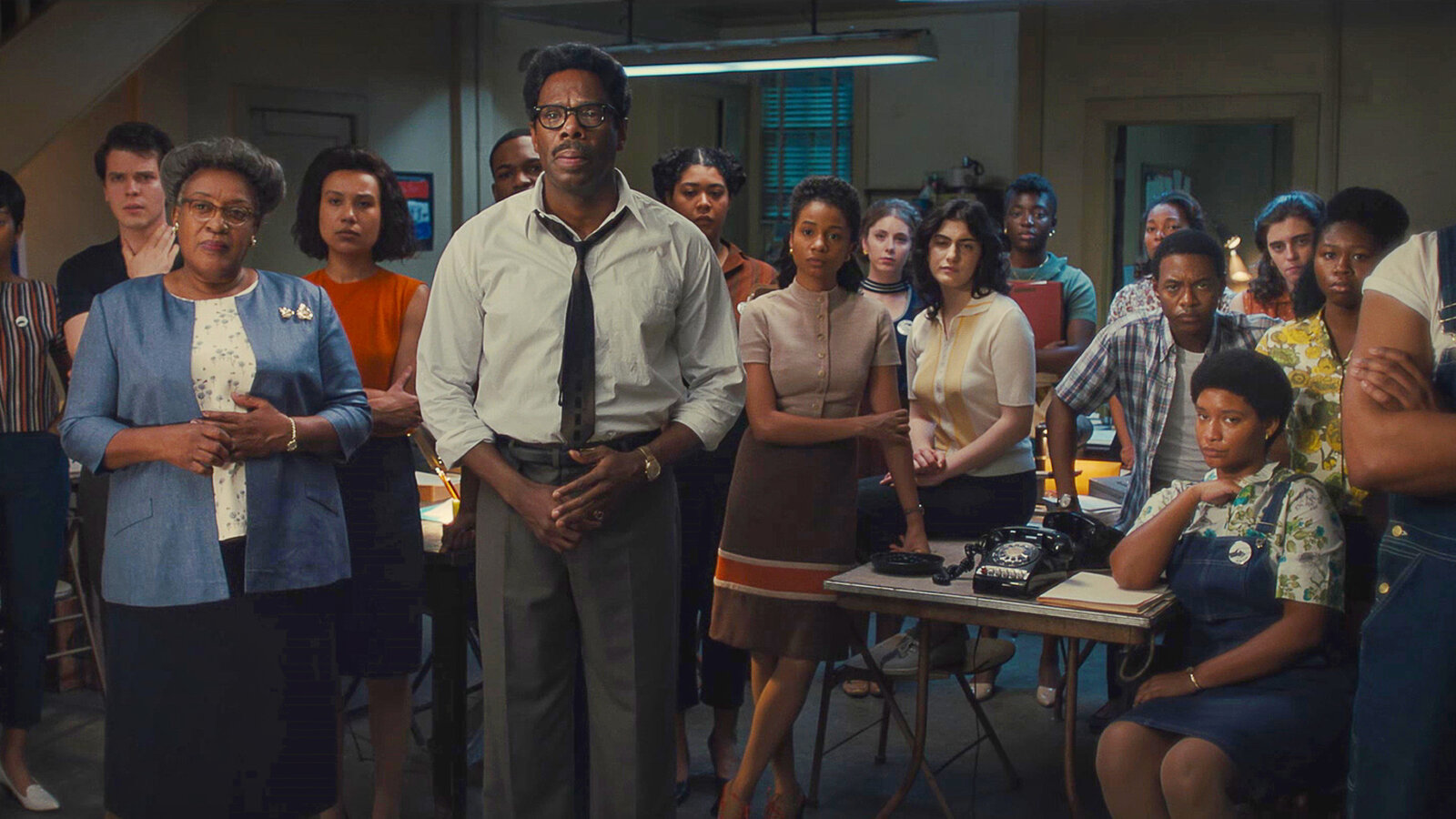
An unsung hero of the civil rights movement gets the customary Oscar bait treatment in this biopic. Though he was instrumental in organizing the historic March on Washington — which helped force the US government to enshrine civil rights — gay Black activist Bayard Rustin isn’t the household name his peers are. In an inversion of that narrative, figures like Martin Luther King appear here as supporting characters to Colman Domingo’s Bayard.
Domingo’s energetic, commanding performance holds the center of the film, but he’s ill-served by the formulaic approach to storytelling that unfolds around him. More than a few scenes feel like they were written, directed, and performed with an eye to making awards ceremony clips, giving the film a disjointed, self-aware air. And yet, for all the limits of its by-the-numbers approach, Rustin does manage to pack in glints of insight. By virtue of who he was, Bayard will never not make for a compelling central figure — so even lackluster filmmaking can’t sap this inherently radical material of all its power. Though not without its flaws, then, the film is valuable for the light it sheds on the polarising effect Bayard’s identity as a gay Black man had within the movement and the intersectional depths he nevertheless brought to it.
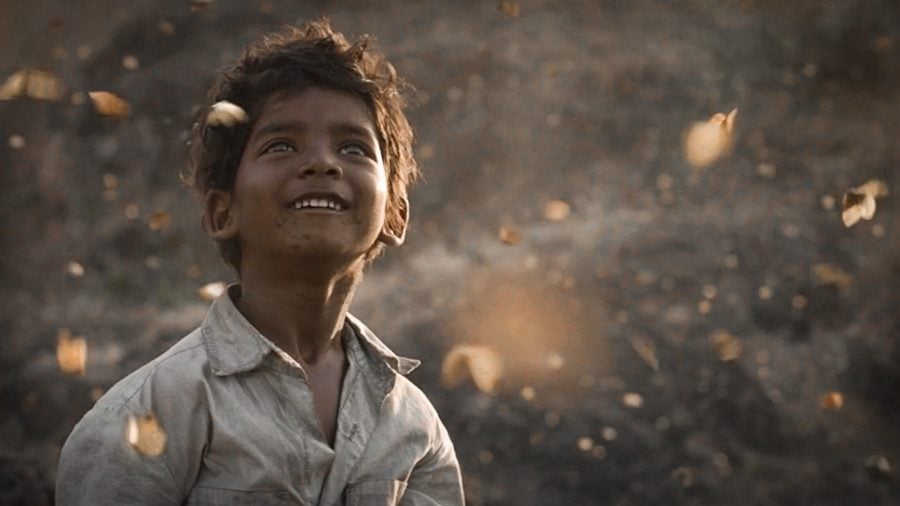
Lion is the award-sweeping movie based on the true story of a kid in India who gets lost in a train and suddenly finds himself thousands of kilometers away from home. 25 years later, after being adopted by an Australian couple, he embarks on a journey through his memory and across continents to reconnect with his lost family. Dev Patel plays Saroo, and Nicole Kidman plays his Australian adoptive mother. Two truly amazing performances that will transport you to the time and place of the events, as well as its emotions spanning tear-jerking moments and pure joy. An uplifting, meaningful, and beautiful movie.
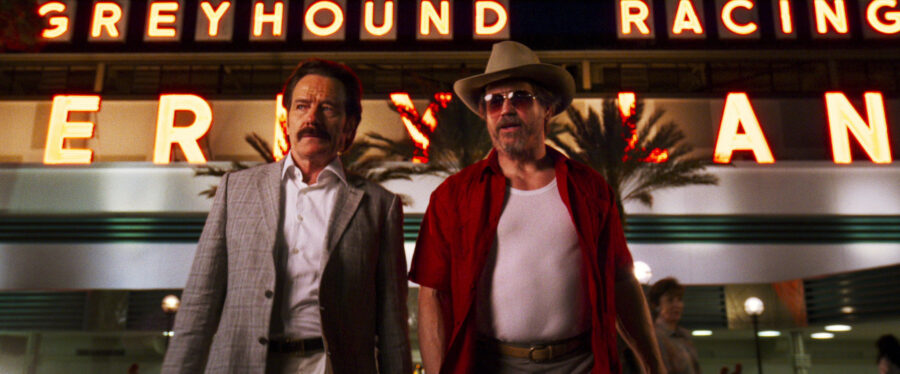
Bryan Cranston, best known for his role as Walter White in the Breaking Bad series, stars as Robert Mazur, a federal agent, who goes undercover to infiltrate the trafficking network of Colombian drug kingpin Pablo Escobar. With the film based on Mazur’s memoir, Bryan Cranston gives an impressive lead performance that captures the intense distress that deep cover can bring. Besides Cranston, co-stars Benjamin Bratt, Diane Kruger, Amy Ryan, and an exceptional John Leguizamo are entirely persuasive and make the film experience enjoyable and intense. The Infiltrator is entertaining and maintains a good pace, with a great cast that makes it a true joy to watch, especially for those who enjoy stories based on real criminals.
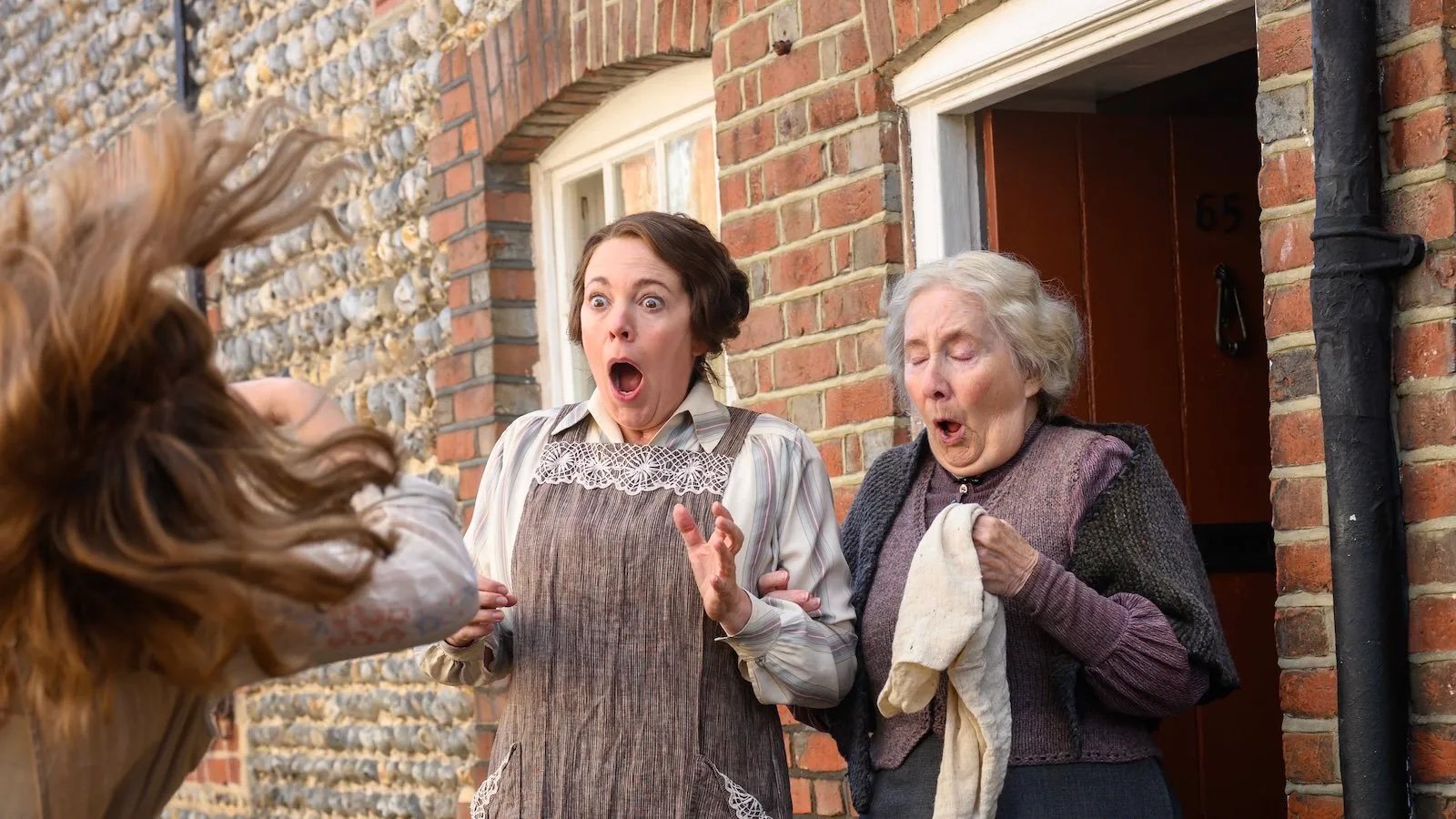
Is this the most thrilling head-scratcher we’ve seen in a while? No. Is it a rousing take on the feminist cause? Not really. But what Wicked Little Letters lacks in intrigue and relevance, it more than makes up for in entertainment value. Not that anyone needs convincing, but here Colman and Buckley further prove why they’re some of the most in-demand actors right now. They’re raw and fiery and hilarious, energizing every scene with their limitless energy. They make the film a breeze to watch, so if you’re looking to pass the time with enjoyable performances, Wicked Little Letters makes for a solidly entertaining watch.
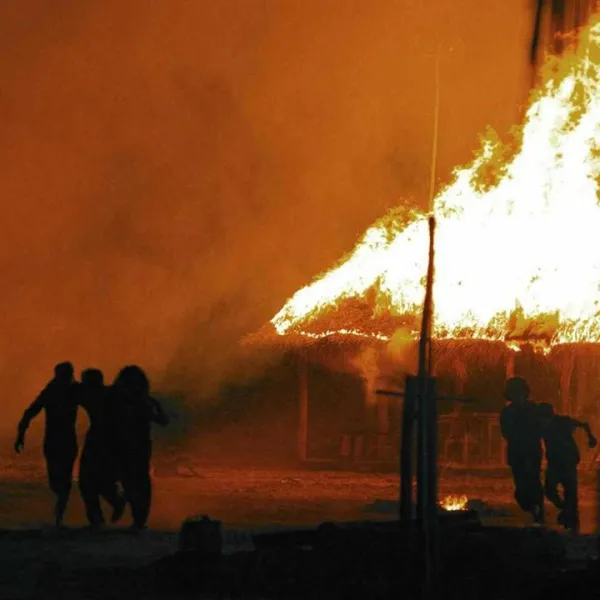
First They Killed My Father adapts the memoir of Cambodian refugee Loung Ung, and it’s not an easy life she’s lived. From the eyes of her child self, the turbulence of the time is already shocking to see, having had to go through starvation, separation from her family, and being thrown into the Cambodian civil war as a child soldier. However, what makes this harrowing biopic work is the way it balances the historical context with Ung’s personal journey. Drawing from her activism in the country (the same humanitarian work that granted her Cambodian citizenship), Angelina Jolie moves beyond the political to the situation on the ground, keeping the memory of what’s at stake each time foreign intervention stokes civil war.
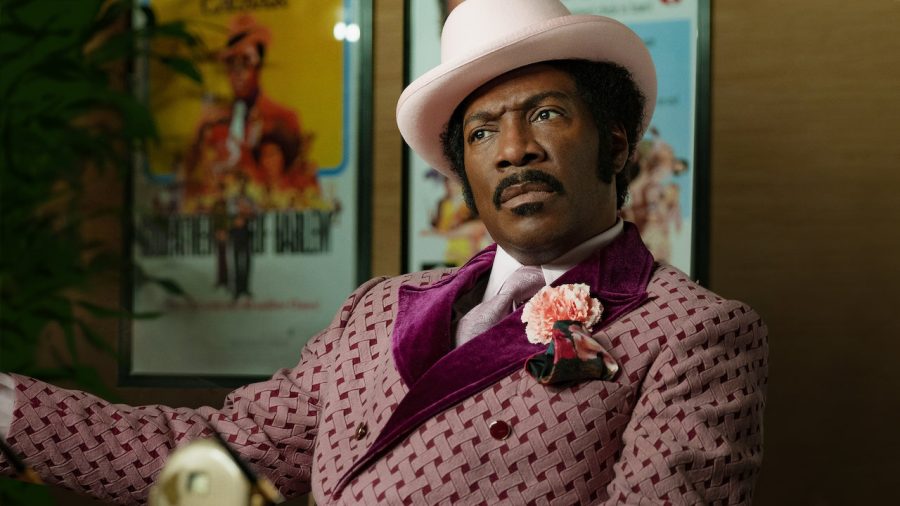
This Eddie Murphy comedy had all the ingredients to be both a famous movie and an award-winner, but neither happened. It tells the true story of Rudy Ray Moore, a comedian who became famous for creating a character called Dolemite, a pimp, and who later attempted to make his own movie based on the same character. Murphy plays Rudy, but there are also other recognizable faces in supporting roles: Chris Rock, Wesley Snipes, Keegan-Michael Key, Snoop Dogg, and many others. It’s above all a funny movie, but being Eddie Murphy’s first R-rated movie since 1999, it’s also a realistic portrayal of both 1970s L.A. and the struggles of being a black filmmaker at the time.
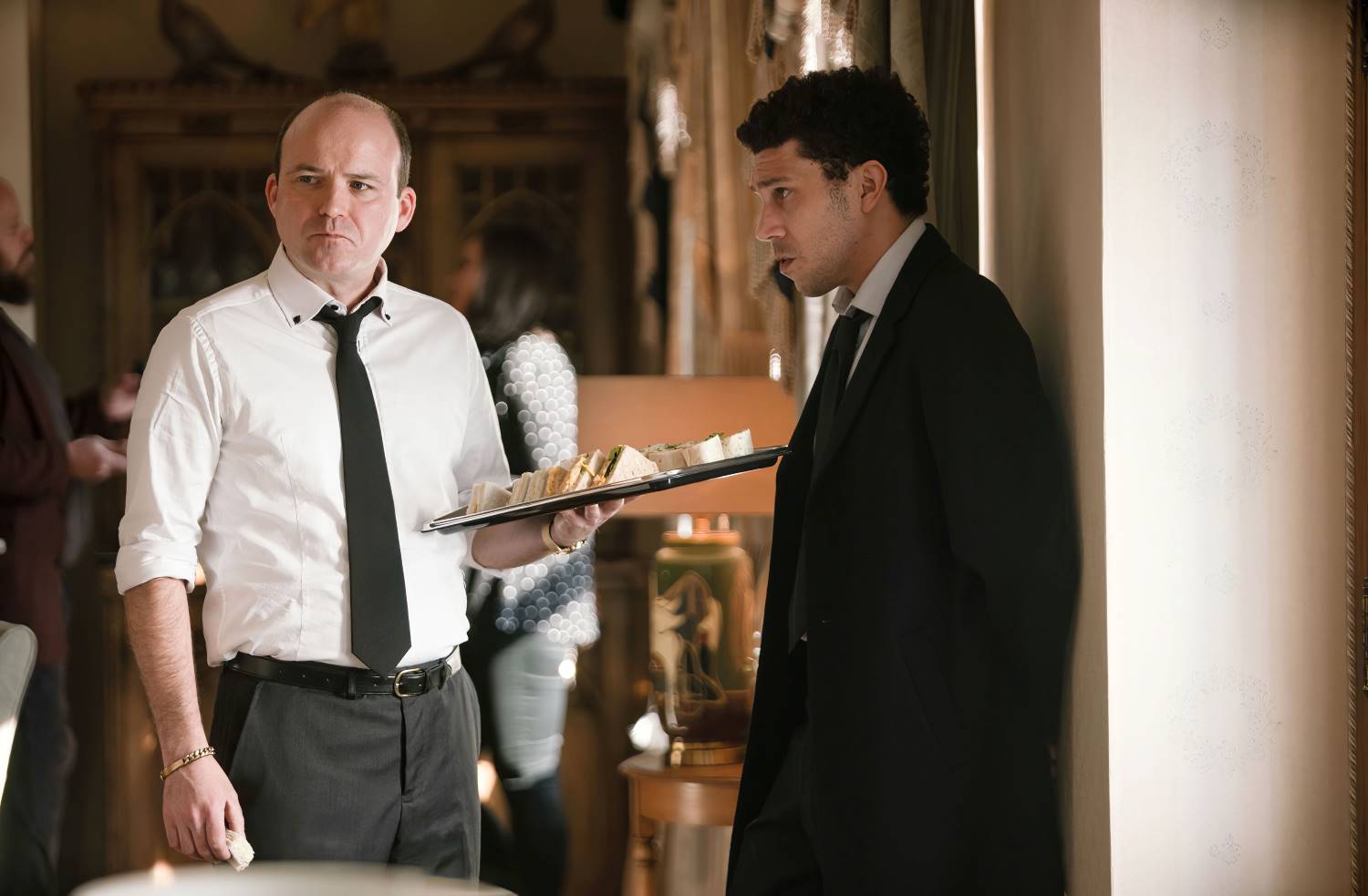
Bank of Dave is a simple but well-told film that feels utterly satisfying from start to end. Dave is the little guy who only wants to give back to his community, but stopping him from achieving his noble goals are the big guys in suits with vested interests and too narrow a focus to appreciate the good that Dave is after. The film is David versus Goliath, countryside versus cityside, socialist versus capitalist (or, if you like, ethical capitalism versus unethical capitalism). You know who will triumph in the end, but that doesn’t detract from the film’s overall enjoyability. The dialogue is smart and stirring, and you can’t help but root for the film’s small heroes to win big.
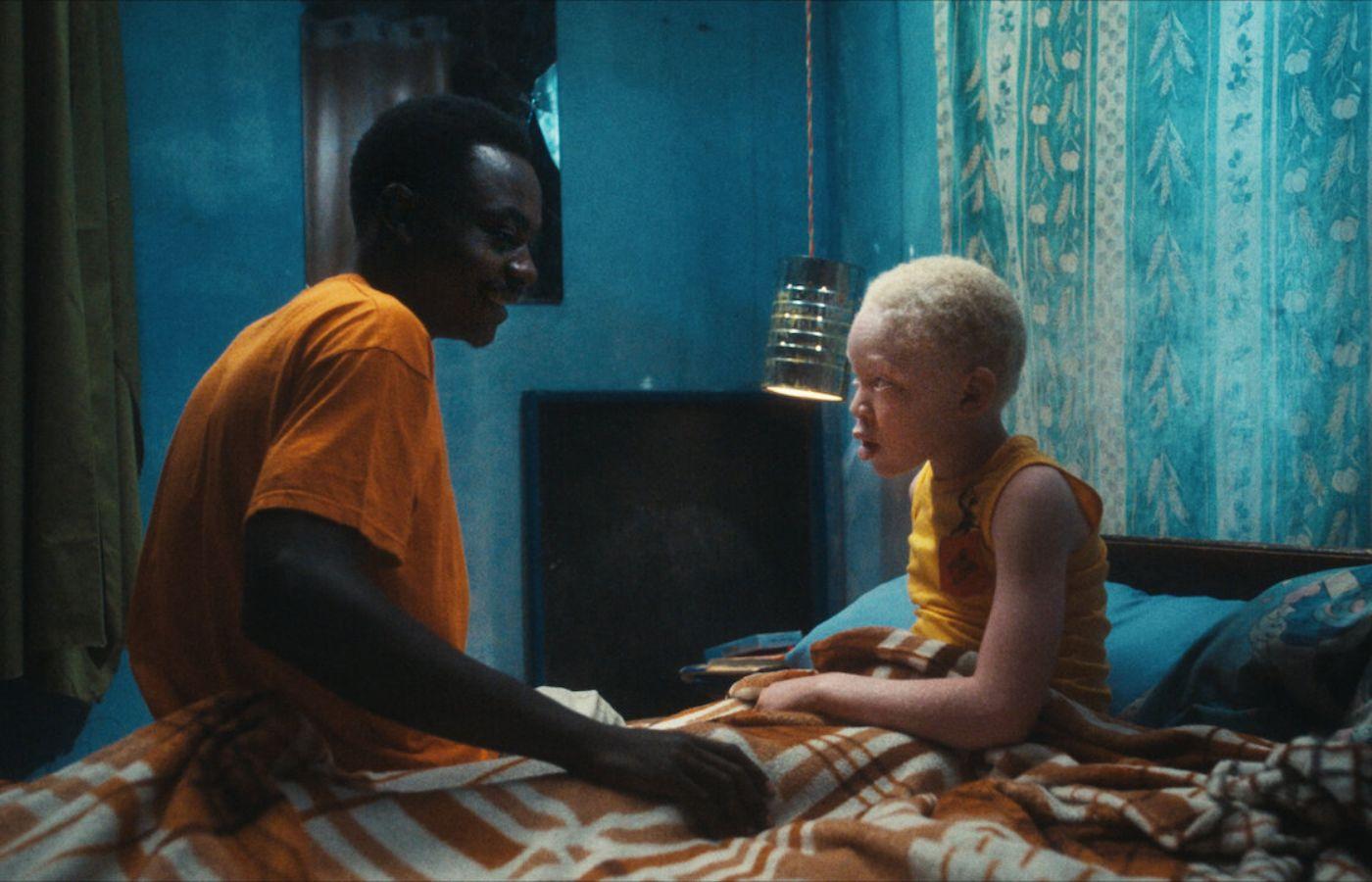
As the first Zambian film on Netflix, Can You See Us? is an interesting portrayal of albinism. Inspired by the real-life story of musician John Chiti, the film’s plot feels grounded, even if it’s similar to other stories depicting discrimination. With newcomer Thabo Kaamba at the forefront, her performance of the albino boy Joseph shines brighter than even the older actors of the film’s cast. That being said, it is held back by repetitive dialogue and sped-up character development from certain characters. Despite this, Can You See Us? is still a remarkable film that stands out from the other tearjerkers available on the streaming platform.
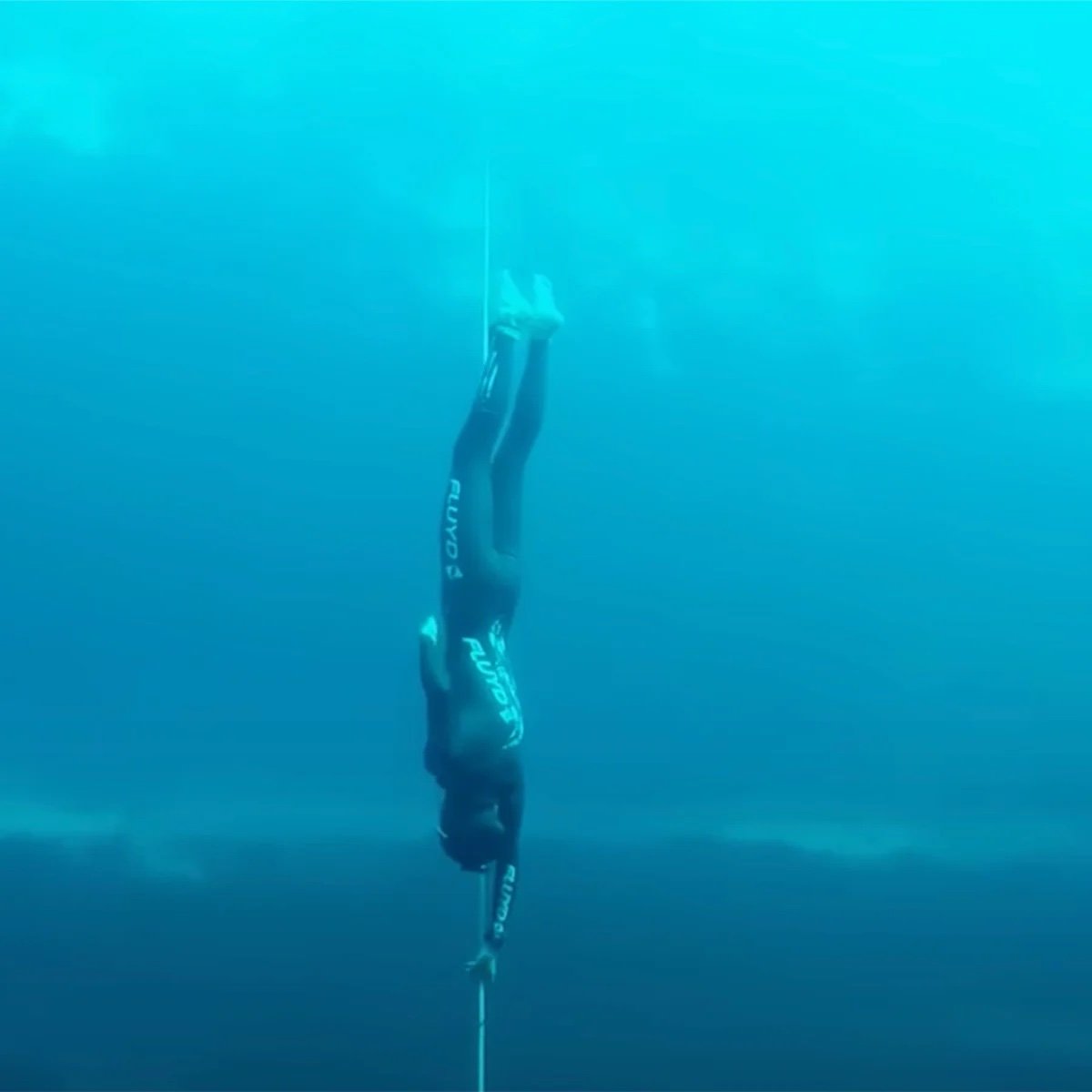
Freediving is a particularly cinematic sport because it taps into something beyond what the human body is capable of. Skilled divers hold their breath for long enough to reach more than 100 meters deep, and watching footage of that incredible feat is exhilarating, to say the least. The Deepest Breath capitalizes on that very spectacle—being exposed to death and conquering it—and banks on using archival footage of world records and training. It’s a smart move, as it keeps the spectator on edge, but it can also be a cruel way to put thrills over ethics. The editing is kept suggestive, but sometimes, shamefully, at the cost of misrepresenting Alessia Zecchini and toying with the viewer’s expectations to the point of callousness.
At the onset of World War II, with most adult males serving in the army, baseball owners came up with the ingenious idea of forming an all-female baseball league. A League of Their Own tells that story through sisters Dottie (Geena Davies) and Kit (Lori Petty), who are enlisted to be part of the Rockford Peaches. Tom Hanks turns in a memorable performance as their alcoholic manager, while Madonna and Rosie O’Donnell play fellow Peaches with their own distinctive flair. The film is an easy, feel-good watch that doesn’t require you to know a whole lot about baseball or even sports. It has a dynamic choreography to it, but A League of Their Own remains a classic because it’s an expert blend of comedy, drama, and history.

To the untrained eye, a TV interview is just that: an interview, a simple (and at times rehearsed) back-to-back between a reporter and their subject. But Scoop is a thrilling reminder of how complex this process can get, beginning with the legwork to the questioning, and even after airing. In the UK, that quest for truth is complicated by stringent palace rules and the fact that the BBC, which McAlister and her colleagues work for, is a publicly funded institution. How free is the free press when a Royal can call off a story before it airs? And how far are reporters willing to go to protect their piece? Scoop is bolstered by a smart script and a wealth of strong performances—Sewell is almost unrecognizable as Prince Andrew and Gillian Anderson is commanding as anchor Emily Maitlis. But the movie won’t be as strong as it is without Piper leading it; she’s entirely entrancing as she works her way from underestimated underdog to compelling champion.

Christmas isn’t usually the best time to watch a tense war drama, but there were some Christmases where war was still active, including, of course, the Great War. Joyeux Noel (or Merry Christmas in French) depicts one such time. Of course, as a depiction of a real historical event, it’s possible that you might have already heard about the Christmas truce of 1914. However, there’s something extraordinary about the way writer-director Christian Carion depicts the humanity shared by all fronts, the very humanity that made such a miracle possible. With the awards it won, it’s easy for those who haven’t watched this drama as mere Oscar bait, but Joyeux Noel balances each side, each country, and each language with care, turning this international co-production into a miracle of its own.
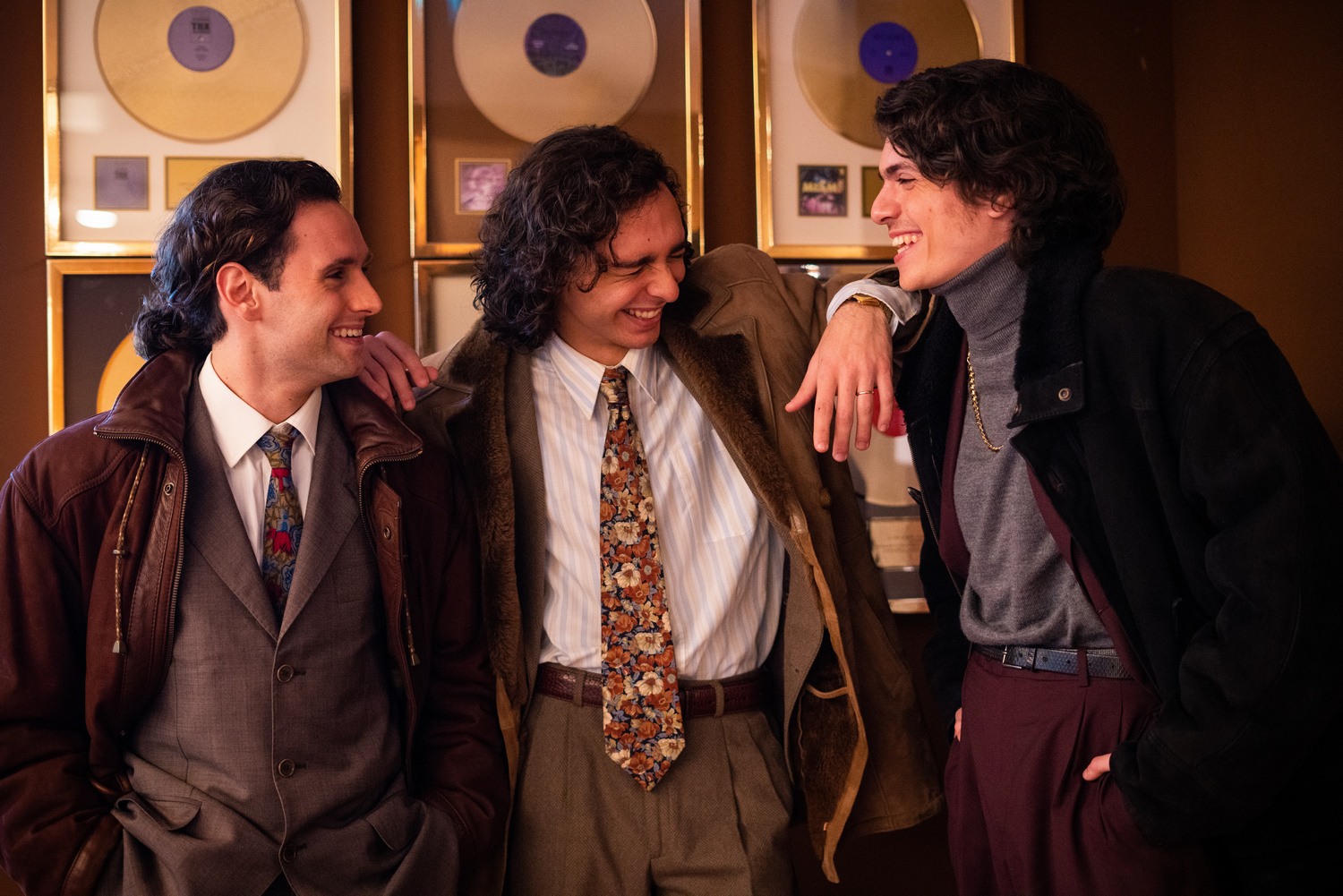
Fast and funny with surprisingly tender moments in between, Mixed by Erry doubles as a fascinating period piece and a heartfelt family comedy. On a larger scale, it tracks the rise of musical piracy, which Erry and his brothers accidentally stumble onto with their cassette-copying business, Mixed by Erry. But what starts out as an innovative trade fueled by Erry’s love for music—Erry himself is like a Spotify algorithm come to life, instantly creating mix tapes for people based on what they like—soon transforms into a legal threat that catches the ire of record labels and finance regulators alike. It sounds thrilling and complicated, but the film’s lofty premise is grounded by the relatable dreams Erry and his brothers share. They genuinely believe they’re doing nothing wrong by distributing music and boosting the local economy, and as naive and misguided as that may be, there’s something heartwarming about their intentions. The film itself doesn’t take sides. Instead, it acknowledges the situation for what it is—a landmark case in musical history ripe with educational and entertaining moments.
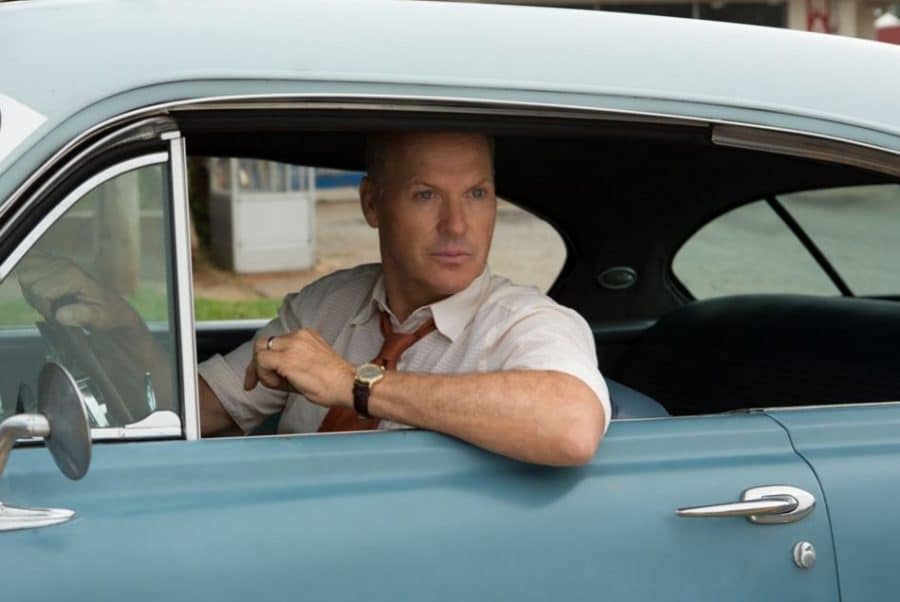
Michael Keaton is the founder of McDonald’s. Well, not exactly, because this movie is the story of how the man he plays, Ray Kroc, took over the company from two very innovative brothers named Mac and Dick. Played by John Carroll Lynch and none other than Nick Offerman, the brothers put up a fight while Kroc works to franchise the name and make it into a billion-dollar empire. It’s a real-life story of the pursuit of the American dream through both persistence and ruthlessness, retracing Kroc’s history from a struggling salesman to a fiercely pragmatic business giant. A crazy story and a cautionary tale of sorts, this is a movie that showcases America for what it is.
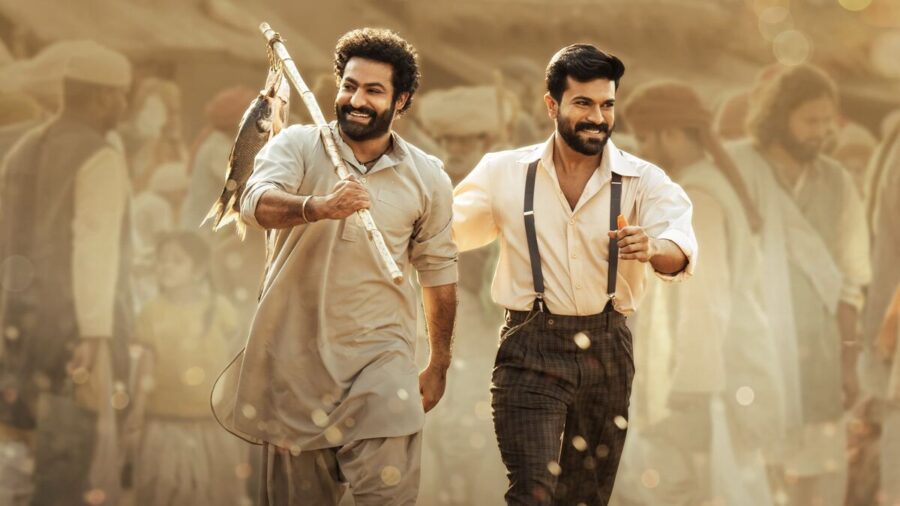
Set in 1920s India, RRR follows two revolutionaries who strike up an unlikely bond and fend off the British regime from their home. In their epic journey to protect their people, they encounter a number of setbacks that prompts them to put their incredible combat skills on full display.
Despite its three-hour run, RRR never drags, thanks in large part to its breathtaking action sequences and eye-popping visuals. It may contain all the familiar beats of a blockbuster, but RRR is notably grounded in its central, political theme of anti-colonialism, the sincerity of which keeps the film’s big heart beating palpably throughout.
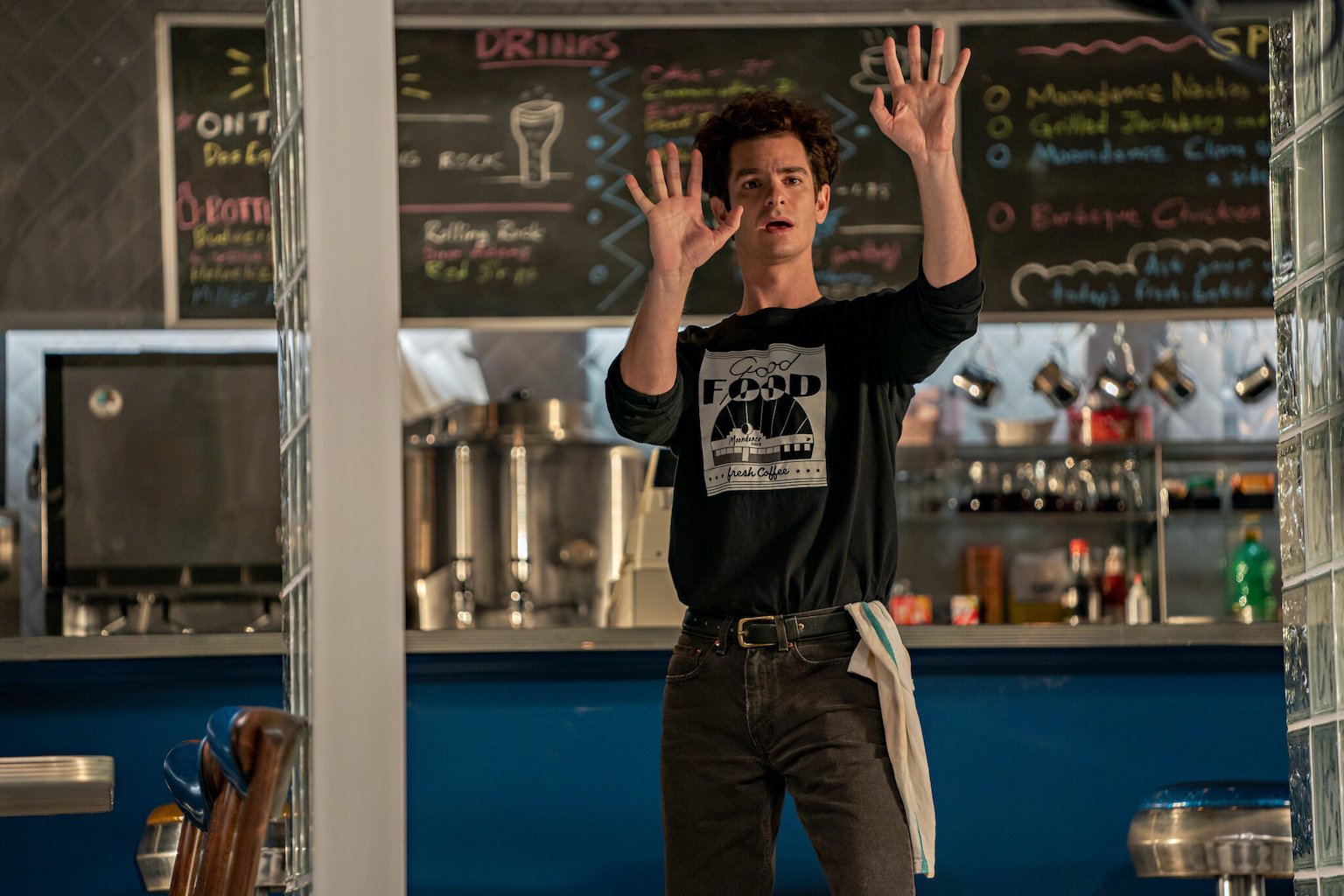
With its origins as a full-length rock monologue, it’s understandable if Tick, Tick… Boom! comes off as overly concerned with its protagonist’s personal anxieties and not the larger social and health crises happening right outside his door. But while it really doesn’t offer much insight into the AIDS epidemic, or even the art scene of 1990s New York, the helplessness that Jonathan Larson feels in the face of his own inability to save the world comes off as honest expression nonetheless. Andrew Garfield and a strong cast that includes Robin de Jesús and Vanessa Hudgens give purpose and energy to this somewhat messy character study that still manages to land its emotional beats.
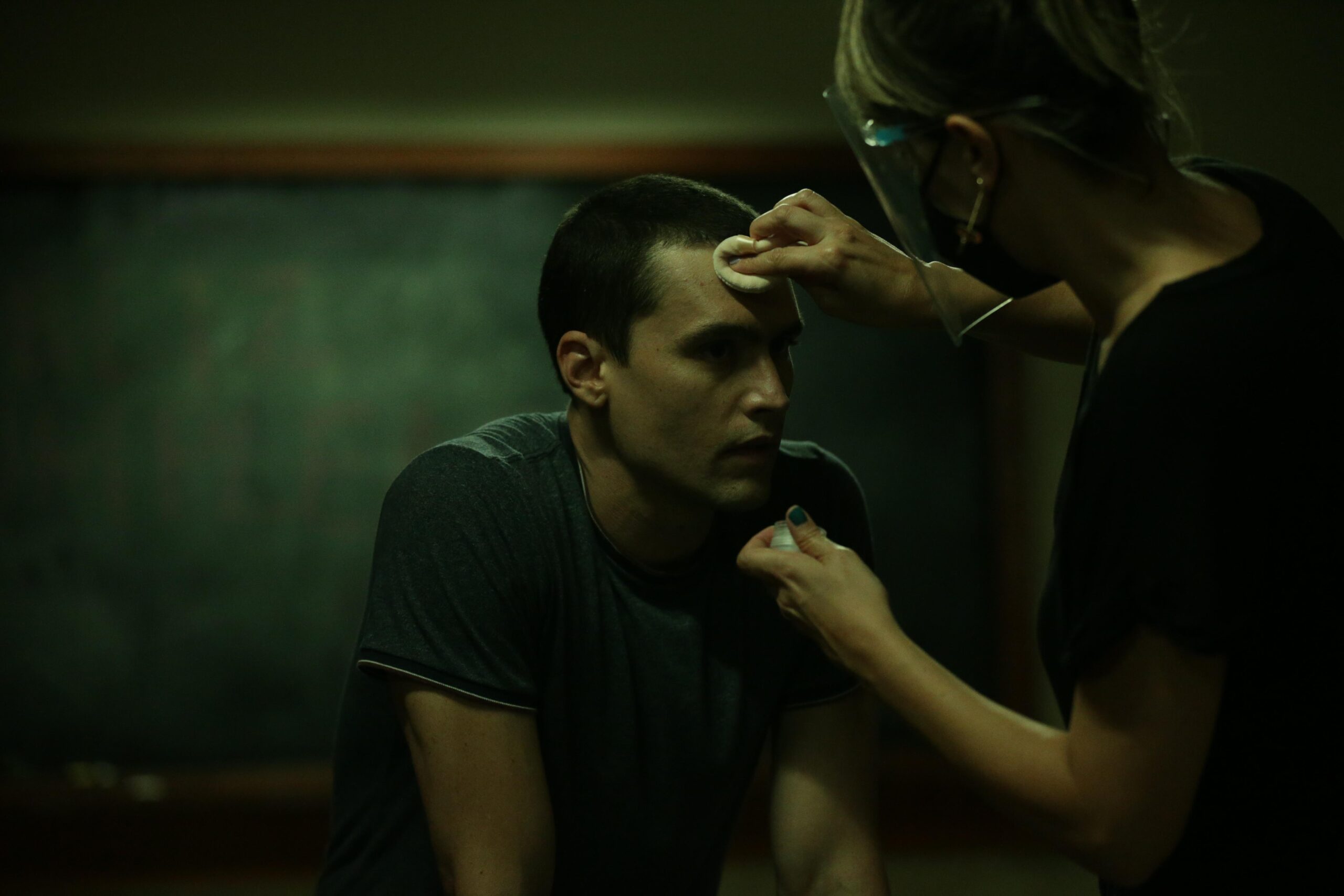
While we would like to think that we would do all we can to fight against a tyrannical regime, it’s not as easy as we think, and there are plenty of consequences that we wouldn’t foresee, living in relative peace. Diego Vicentini’s debut feature is a portrait of Venezuelan dissidents forced to flee the country, expanding on the short he made five years previously to flesh out the double lives most exiles go through– the angry yet hopeful protests they left behind in their homeland, and the peaceful, yet guilt-ridden, traumatized lives they now lead in another country. While it’s easy to expect certain moments, especially for people familiar with the country’s situation, Simón nevertheless was a film that needed to be made in order to shed light on this issue.
This Netflix production is based on a case that rocked public opinion in Italy. Stefano Cucchi was arrested for a minor drug charge and died five days later from police brutality.
The movie takes its time to expose what Cucchi went through, which might lead some viewers to find On My Skin slow, and rightfully so. Thinking about the issues at hand here, it’s easy to understand why the director made that choice. In fact, Italians’ complex relationship with the Carabinieri, a division of the Italian army that carries out domestic policing, is delicate to explain and requires meticulous unveiling.
Nominated to nine David di Donatello Awards (the equivalent of the Academy Awards in Italy), of which it won three.
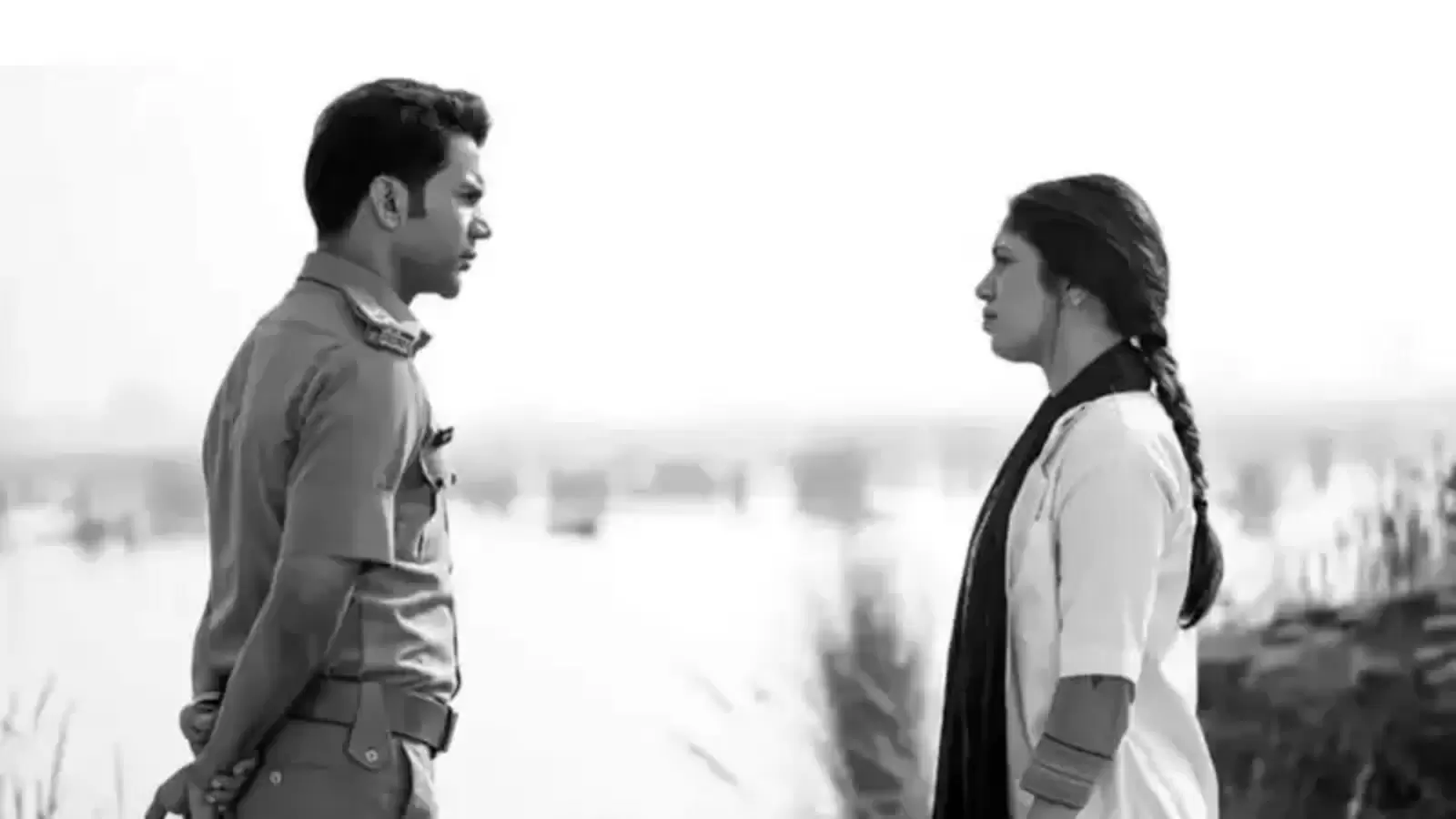
COVID-19 raised concerns about sanitation and cleanliness, but in a society that just banned discrimination against “impure” castes seventy years ago, these concerns feel reminiscent of previous caste prejudice. Writer-director Anubhav Sinha presents this social inequity through Bheed, a black-and-white drama set in a fictional checkpoint as the lockdown restricted travel between different Indian states. As the people in the checkpoint wait for the updated government regulations, tensions rise between the officers and the travelers, as the stuck migrants worry about hunger, thirst, and infection. While it’s definitely a heavy film to watch, this film doesn’t exploit the pandemic as fodder for drama. Instead, Bheed realistically portrays how a crisis like COVID-19 exacerbates existing social inequity.
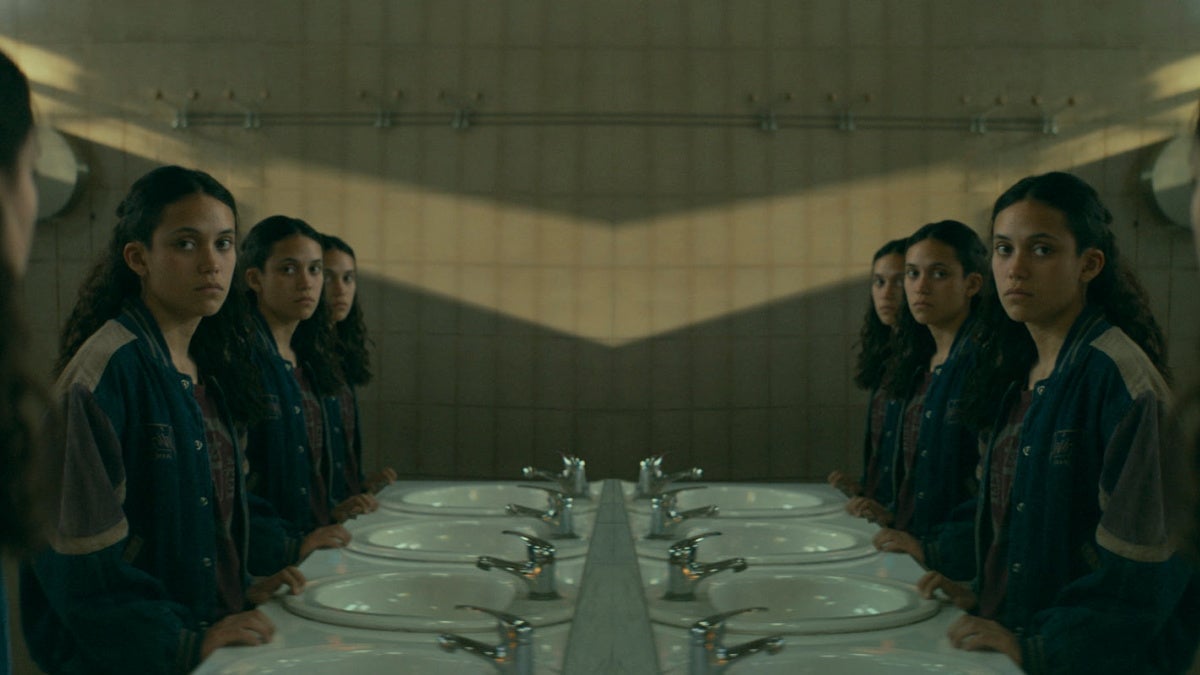
Inspired by the Spiniak case, Blanquita reimagines the infamous scandal through mirrored interrogations and disorienting viewpoints. Blanquita rewrites the original witness, whose fictional variant, in turn, rewrites the abuse faced by victims as her own. She is transformed from a clueless liar, into someone still a liar, but one that did so when every other possible witness has been discarded for being unreliable, for being too traumatized to go through the judicial process unflinchingly. The film takes on a provocative subject matter, at a time when real life sexual abuse allegations are treated with the same scrutiny Blanca faces. However, Blanquita does so in a way that gives its complexities the weight it deserves. It’s a fascinating thriller, a quandary that tests the idea of ends justifying the means… But it’s one that’s disturbing, given the consequences to each crime.

Given a budget from Netflix to make a documentary on Korean film, some would have chosen instead to make one for big Korean filmmaking personalities like Academy Award winner Bong Joon-ho, who is featured here. However, director Lee Hyuk-rae instead creates Yellow Door, a love letter to the ‘90s film club that inspired a generation. The warm way each member tries to remember the club made decades ago, and the handy, almost cheeky, animations makes it feel like we’re there in the club with them, just listening to friends reminisce about the way they obsessed about film, even if it wasn’t the major they were studying in. It’s so nostalgic and sentimental, and in shifting its focus, it celebrates the lovely experience of finding a community of like-minded people that’s just obsessed with film as you are.
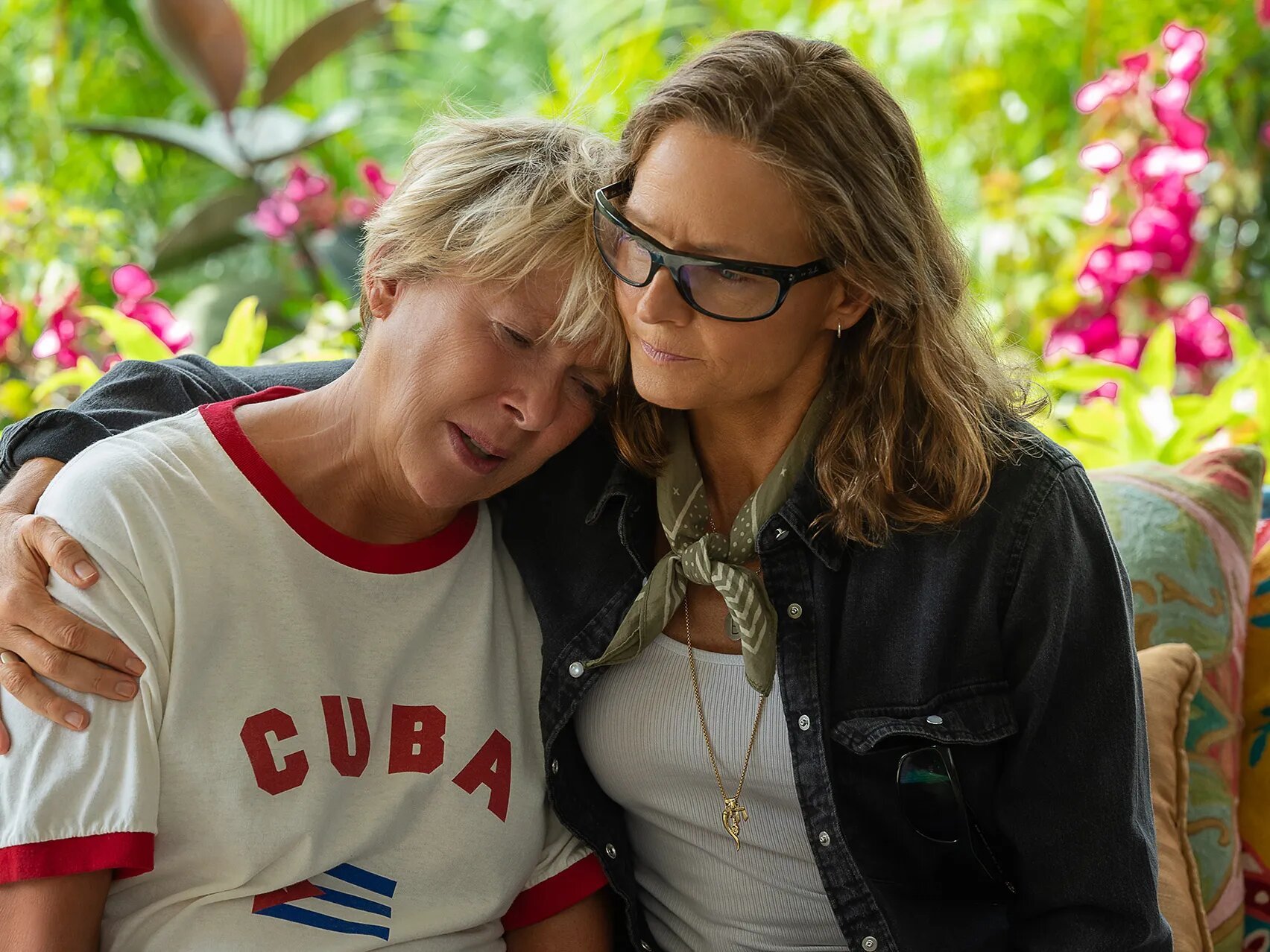
After winning Oscars for their documentary work, filmmakers Elizabeth Chai Vasarhelyi and Jimmy Chin make their narrative feature debut with Nyad. The move to narrative fiction isn’t a monumental jump for the director duo, whose cinematic documentaries (among them Free Solo and The Rescue) play like nerve-shredding action thrillers and intense human dramas. Nor does Nyad’s subject — another extreme feat of human daring and endurance — make this feel a million miles away from their most famous works.
The most obvious departures from the directors’ documentary strengths — Nyad’s flashbacks and hallucination scenes, for example — do sometimes highlight their newness to narrative filmmaking, however. These scenes feel shallow and therefore disconnected from the movie’s otherwise deeper treatment of its subject, just as the performances dip into outsized cliches at times. Mostly, though, Nyad manages to float above the trap of trying too hard to be an inspirational sports drama thanks to its confrontation of Diana’s prickly personality. This flips the film’s perspective onto that of Diana’s team (including her coach and former girlfriend, played by Jodie Foster), who ultimately suffer the consequences of her stubbornness. That refusal to submit to hagiographic impulses gives the film a documentary-like edge of truth, making the rousing moments here feel genuinely earned.

While named as a “how-to”, How to Have Sex is less of an instruction manual, and more of a collection of summer break moments presented as is. At the start, when Tara, Em, and Skye run to the freezing ocean water, the film seemed like it would have all the nostalgic coming-of-age moments that they would remember forever. But as the film progresses, and the girls meet other teenagers at the resort, there’s an eerie, foreboding feel that starts to build up, with every beer bottle, with every whisper, and with every insinuation Tara receives. And rather than preach about consent, writer-director Molly Manning Walker makes them fumble around without the concept of it, the same way teens tend to do, making it much more potent than a cautionary tale.
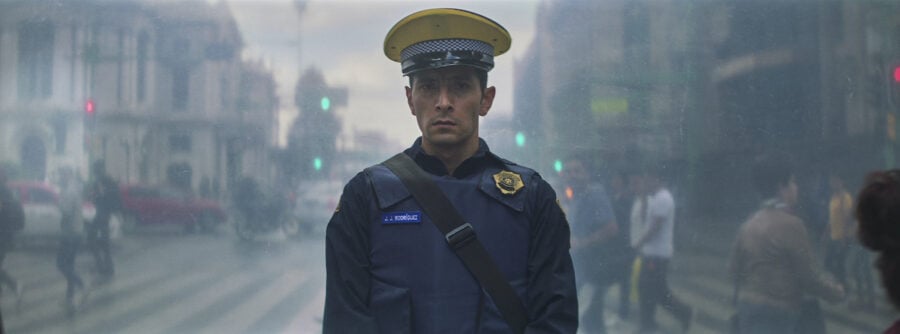
In the Mexican film A Cop Movie, director Alonso Ruizpalacios mixes fact and fiction, documentary and narrative, to tell the tale of Teresa and Montoya, two police officers whose dreams are dashed by the corruption of their trade and who, eventually, find love and comfort in each other.
Ruizpalacios takes thrilling risks in structuring this genre-bending story—cutting stories into parts, jumping back and forth between the harrowingly real and captivatingly non-real. For all the experimental maneuvers he makes, however, the through-line is always Teresa and Montoya: particularly, their love for each other and for an institution that should have, in an ideal world, supported them and the people they vowed to protect.
To its credit, instead of merely humanizing the controversial police force, A Cop Movie adds some much-needed nuance to the big picture. At the end of the day, they’re no different than any other underpaid laborers working desperately to make end meets. A Cop Movie doesn’t gloss over the fact that the police, like so many other workers, are stuck in a rotten system that’s long overdue for a major overhauling.
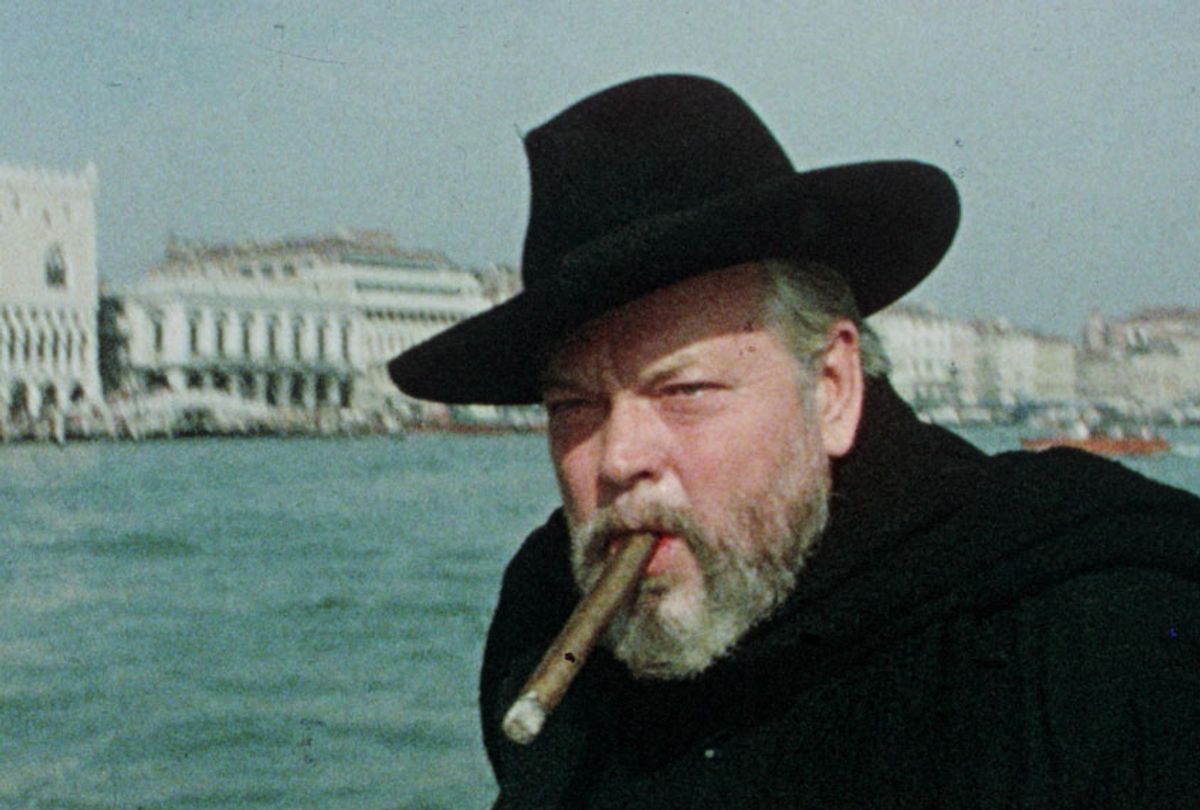
It’s bold to make a film about a legendary icon of cinema, but it’s even bolder to make one about Orson Welles. Best known for making Citizen Kane (universally agreed upon as one of the best movies ever made), Orson Welles is the renegade filmmaker whose works and techniques form the foundation of modern narrative filmmaking today. In his eyes, he asserts that the best films are made by accident. However, armed with archival footage and interviews with those closest to Welles, director Morgan Neville dares to question one of cinema’s biggest geniuses by examining the production of his last unfinished film, the Hollywood satire The Other Side of the Wind. While Welles was undeniably genius – able to inscrutably visualize a film without scripts – it’s easy to see how his tendency to stoke conflict for art could be so self-destructive. This film presents Welles as he is – both a cinema maverick and also an overly demanding artistic tyrant.
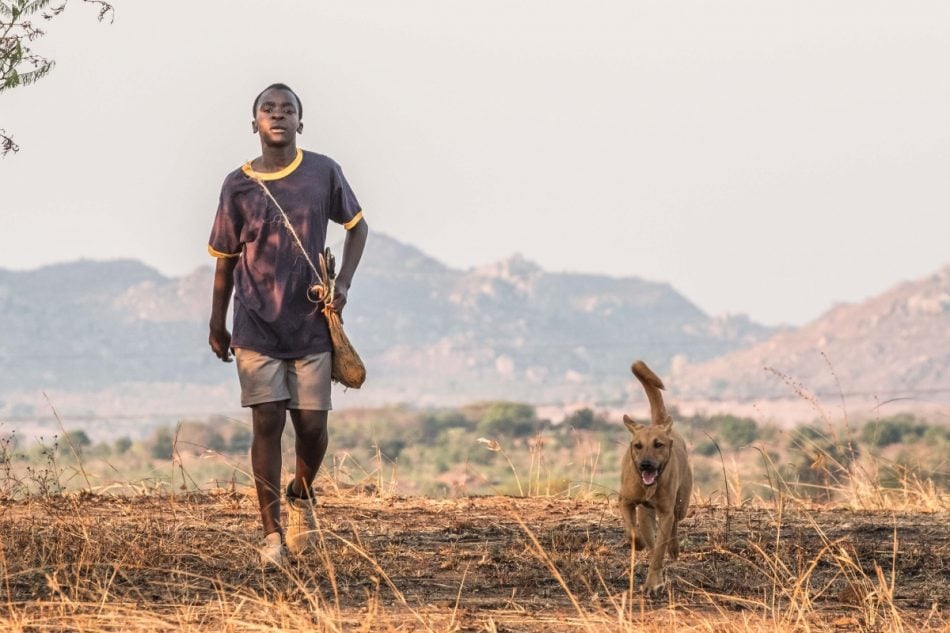
This movie’s energy is completely intoxicating.
It’s the directorial debut of renown British/Nigerian actor Chiwetel Ejiofor, but it feels like the work of a veteran.
In a true story told in English and Chichewa (a language from Malawi), a young boy is expelled from school because his parents couldn’t afford tuition. At the same time, his village is struck by a variety of natural circumstances that bring them the threat of drought and famine.
The young boy sneaks into the library in the hopes of making a windmill and saving his village, and you can guess what follows from the title.
The triumph of engineering and a boy with a dream; mix in an incredibly interesting culture, full of unique family dynamics and a thought-provoking intersection between religion, tradition, and technology. The result is a delicate but uplifting movie, not to be missed.

You wouldn’t expect two old men discussing God and politics to be deeply intriguing, but I suppose it’s different when you have Hopkins and Pryce leading the whole thing. Nothing overly dramatic happens between the two (those parts are saved for the flashbacks, which are just as compelling), but they manage to make every discussion, every point, and even every word feel heavy with the weight of their guilt and hope. These two are proof that good acting can be carried by the tiniest lilt in tone and shift in gesture. You don’t have to be a Catholic or be interested in God at all to appreciate the great performance and touching vulnerability at the heart of The Two Popes.
The Siege of Jadotville is a different kind of war movie. It doesn’t recount famous battles or portray renowned heroes – instead, it’s about heroes and events that went completely unnoticed. Namely, the Irish 35 Battalion ‘A’ Company – a group of youngsters who are sent out on a U.N mission to the Congo. What was supposed to be a simple positioning quickly becomes one of the most sought-after locations and the battalion of 150 ‘war-virgins” find themselves up against 3000 mercenaries led by experienced French commandants. And what a tribute this film is: it’s well-paced, powerfully shot, and the acting, led by Jamie Dornan on one side and Guillaume Canet on the other, is absolutely perfect.
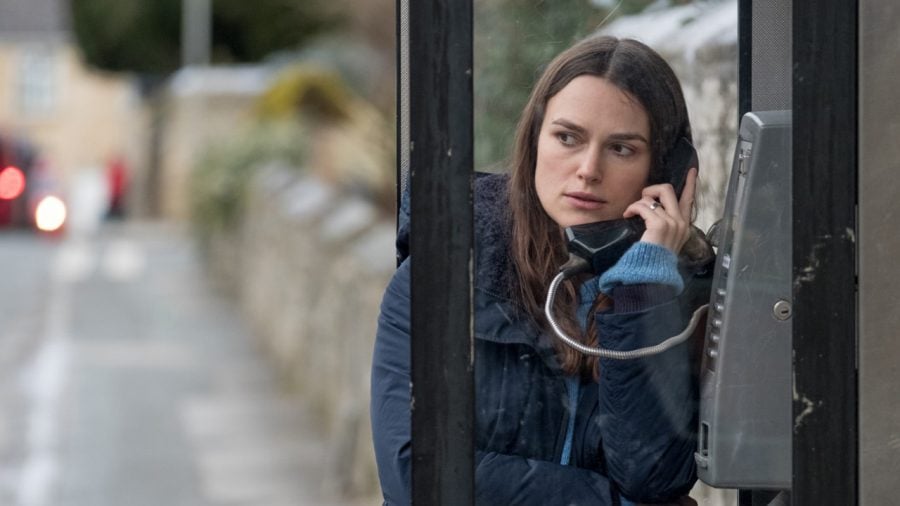
Keira Knightley stars in this incredible true story of an Iraq War whistleblower who remains relatively little-known in the U.S. Katharine Gun was working for the communications office for the British government when she received a memo in the months leading to the war that showed that the U.S. requested illegal wiretapping assistance from the U.K. on U.N. diplomats. In a heroic act, she chooses to share this memo, hoping that it would stop her government (then led by Tony Blair) from going to war. Spoiler alert: didn’t happen, but this decision, which first seemed like a personal sacrifice, has severe implications on her family as the government finds out that she was behind the leak. A compelling political mystery of a case that deserves much more attention than it once got.

The Swimmers tells the true story of sisters Yusra and Sara Mardini (played by fellow sisters Nathalie and Manal Issa), Syrian swimmers trained to compete at the Olympics. When their athletic goals and overall safety are threatened by the increasing presence of war, the girls decide to take a chance and migrate to Europe, where they hope to live out their dreams and reunite with their family someday.
The Swimmers is a touching family drama that does right to center on the love and tension between the siblings. Yusra and Sara’s relationship perfectly encapsulates the envy and resentment but also the deep love and loyalty that are present in every sister bond. It’s tender in these moments, but it can also be equally searing—as a refugee drama, it chillingly tracks the complicated and inhumane processes of fleeing one’s country for a safer future.
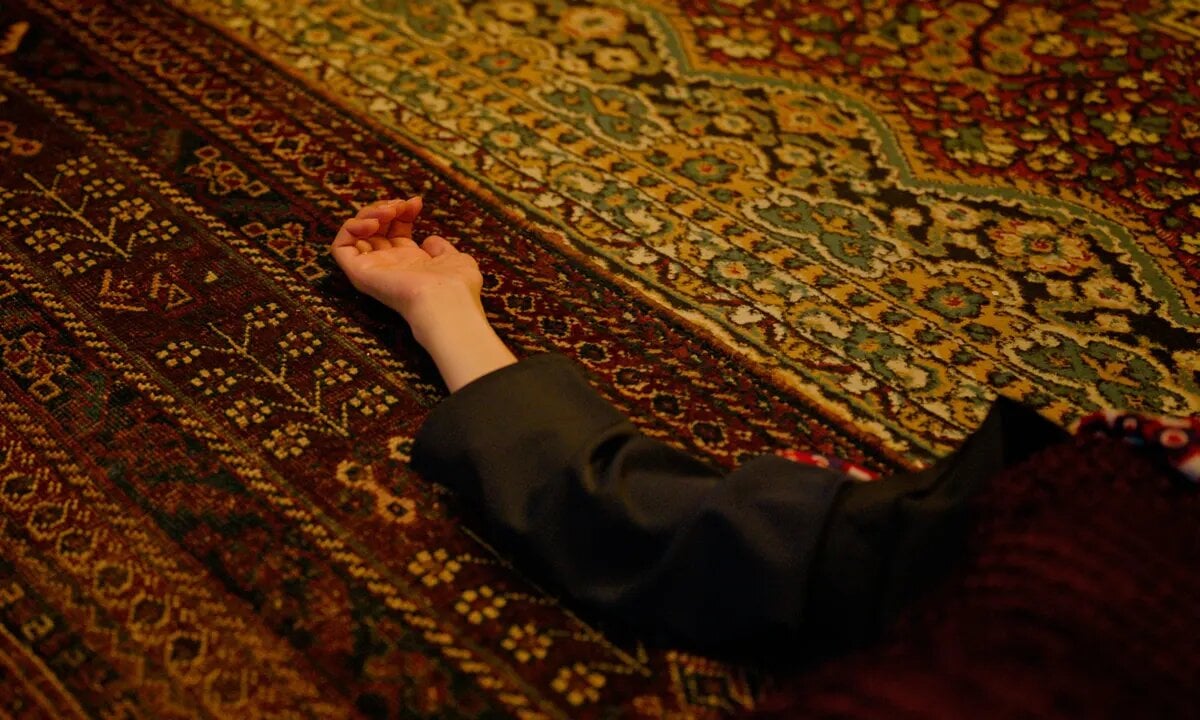
As a crime thriller, Holy Spider is taut and terrifying, a modern noir that manages to unnerve despite the familiar moves it employs. The cat and mouse chase between serial killer and investigative reporter, for instance, is a classic tale, but that doesn’t make Holy Spider any less gripping. The film benefits from artful camerawork, considered acting (as the daring journalist Rahimi, Zar Amir Ebrahimi nabbed the Best Actress award at Cannes), and most of all a nuanced take on the situation in Iran.
Despite having a clear stance against violence and corruption, nothing in Holy Spider is black and white. Contradictions abound, and even when presented with brief moments of justice, we’re left scratching our heads looking for more. Such is the case when the system, and not just an individual, is the true pest.
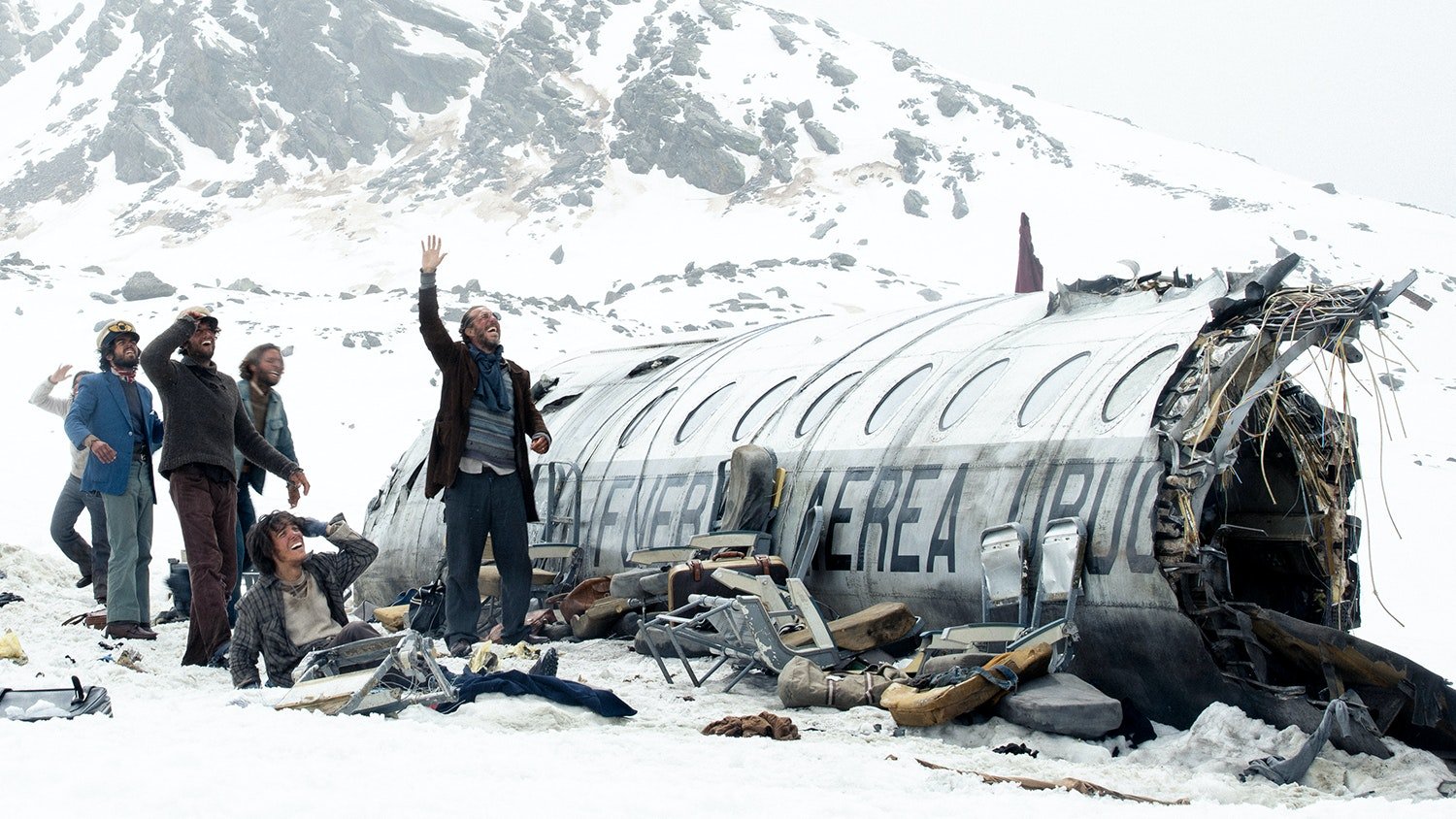
Real life tragedies, especially one that’s as sensationalized as the Miracle in the Andes, can be tough to depict on screen. On one hand, the film has to keep true to the story but also maintain some form of spectacle to keep people watching. Past depictions of the 1972 crash are preoccupied with the cannibalism portrayed by big name actors, but Society of the Snow takes a different route. The actors are newcomers, the threats to their lives don’t require daring action stunts, and the cannibalism is limited to small chunks indistinguishable from animal meat. Instead, the spectacle of Society of the Snow is the human spirit– the vulnerability, the respect, and the generosity they’ve given each other in order to survive. It’s still an uncomfortable watch, especially since we get to know some of the survivors before the crash, but it’s definitely a transcendent addition to the genre dedicated to the miracle of existence.
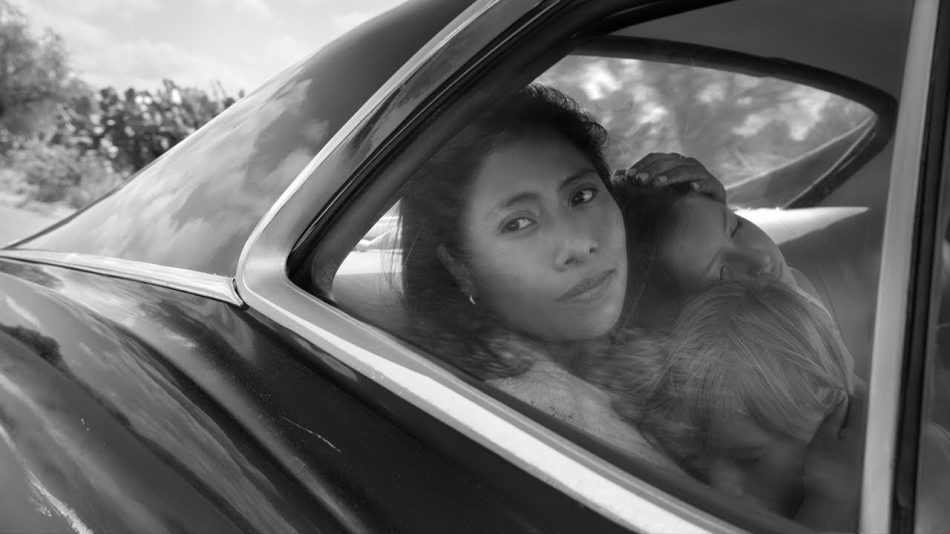
Alfonso Cuaron is a master storyteller, Academy Award-winning director, and the man behind masterpieces such as Y Tu Mamá También, Gravity, Children of Men, and perhaps more importantly, the (uncontested) best Harry Potter movie (Prisoner of Azkaban, of course). In Roma, he tells a different story. His own.
Building on events from his childhood, he tells the story of a young domestic worker in Mexico City’s Roma neighborhood. You get tales of class struggle, family dynamics, and sexism in 1970s Mexico City.
The first hour is slow but so beautiful. All it does is prepare you for the events to come, and those who stick it out will be handsomely awarded.
This is a stunning, wise and deeply personal movie. It’s everything we should ever ask from filmmakers at their prime.
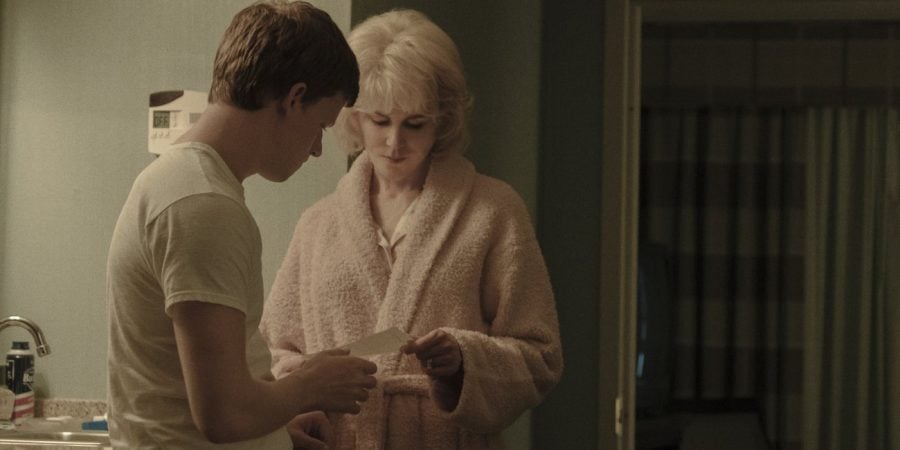
Russel Crowe, Nicole Kidman, and the immensely talented young actor Lucas Hedges (Manchester By the Sea) form an amazing pack of talent in this excellent drama. The story is based on the memoir by Garrard Conley, a true story. Set among deeply pious Christians in Arkansas, Hedges plays 18-year-old Jared Eamons, who discovers that he is gay. Crowe plays the father, a car dealer and a preacher, and Kidman the mom, who is a sweet-natured hairdresser with traditional values. When their son comes out to them after concealing his sexuality for some time, they pressure Jared into going to a Christian conversion camp, where his “lifestyle choice” is to be “prayed away”. The unspeakable camp is led by the Victor Sykes, who is as sinister as he is stupid, played with aplomb by Joel Edgerton, the writer and director. It’s a funny sidenote to a serious movie that many actors in this Southern drama are from Australia, including Edgerton, Crowe, and Kidman as well as Red Hot Chili Peppers bass player extraordinaire, Flea, who plays a drill-instructor-type PE teacher at the camp. The powerful performances are indeed what drive this drama and they contribute significantly to telling a story that needed to be told.
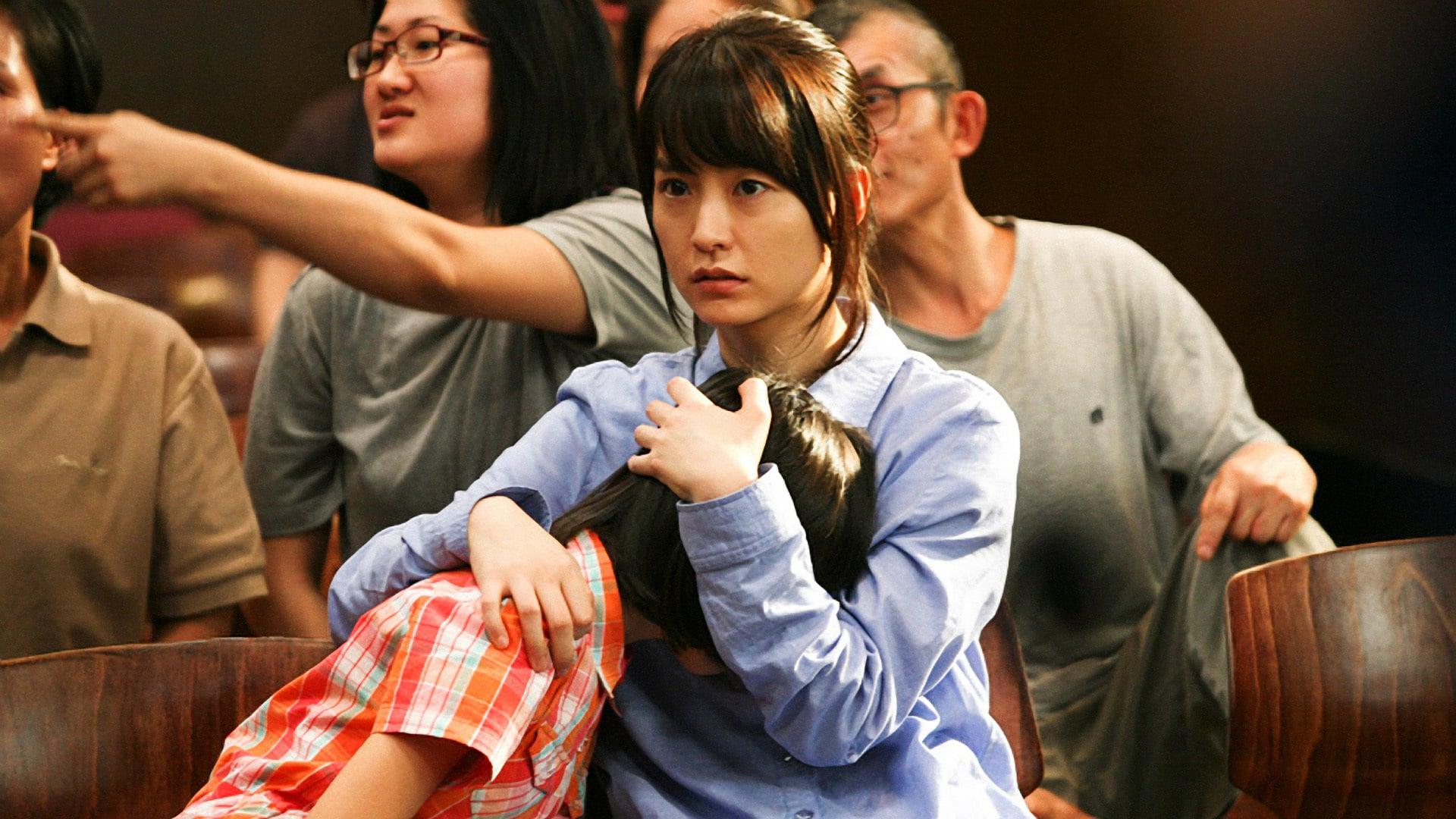
Abuse is bad and should be reported, full stop. But it’s not so easy to do so, when abusers stay in positions of power, and the people who are assigned to keep them in check are cowardly against them. Silenced depicts true crime novel The Crucible, which in turn, is based on a real life case of the Gwangju Inhwa School. Through the perspective of a new art teacher, Silenced systematically outlines how difficult it is to deliver justice, from the way the school administration bribed police and the education department, to the way the court didn’t even think to hire a deaf interpreter. It’s a horrific watch, but the intensity of the depiction was needed, given that this film’s release pushed South Korea’s government to change their laws and the actual school shut down within the same year.
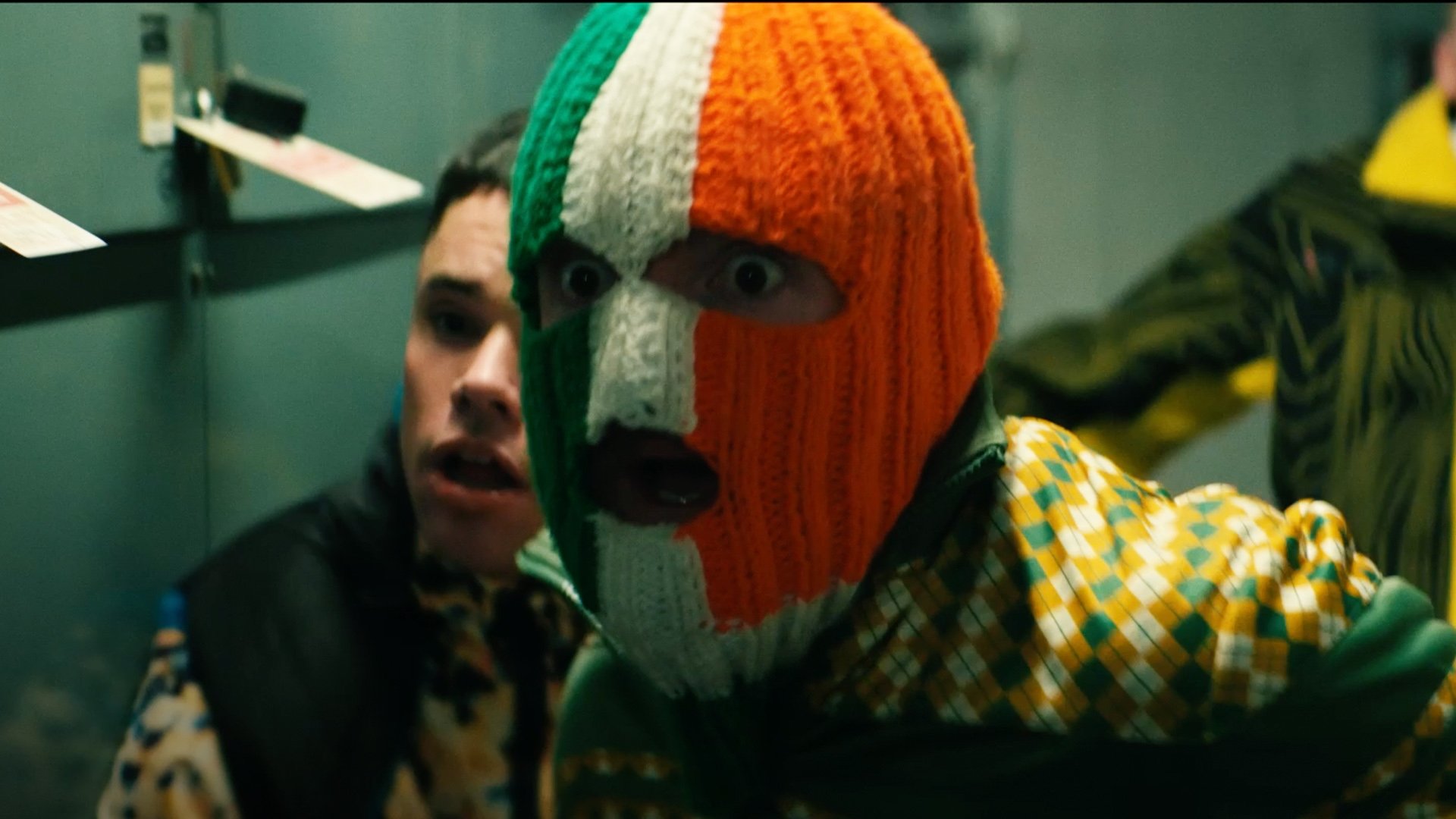
This untamed, high-octane portrait of the Belfast hip-hop trio Kneecap follows real-life members —aliases Móglaí Bap, Mo Chara, and DJ Próvaí, all playing themselves—as they forge a path from lost teens to unlikely cultural icons. Being the first hip-hop act is their native Irish, they’re met with disdain both from their community who think they are misrepresenting the Irish cause (DJ Próvaí translates to DJ Drug Dealer), and from the British for things like playing the same venue where King Charles spoke the night before and one of them exposing their butt with the words “BRITS” and “OUT” written on either cheek.
The story ends up being as much as about the group as it is about identity, artistic freedom, even the Ireland of today – and yet the core of Kneecap, perhaps not just the movie but the group itself, seems focused solely on the importance of having fun while dealing with all of it. The ride is exhilarating, often very funny, and even in tough moments, upbeat. Hang tight.

